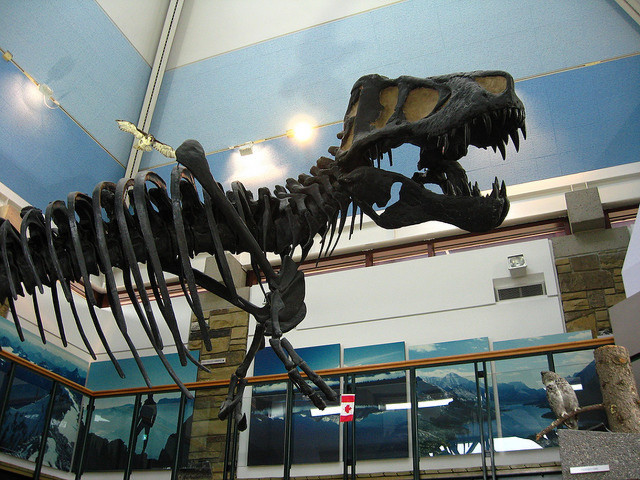The Week In Science: Furloughed T. Rex, Sting Operations And A Brand-New ‘Space Race’

The U.S. government may have had wide-ranging impacts on science, but not all researchers (or science journalists) were put on furlough this week. We looked at a Wikipedia course in medical school, learned that cracking open some literary fiction was good for our emotional sensitivity and bid farewell to Bill Nye the Science Guy’s dancing career. There were a lot of other scientific developments this week, too. Here’s a roundup:
Another unsuspected casualty of the U.S. government shutdown: Tyrannosaurus rex. A T. rex skeleton destined for the Smithsonian Institution Museum of Natural History in Washington has been stalled in Montana. The dinosaur has been residing at the Museum of the Rockies in Bozeman, Mont., and was due to embark for the nation’s capital next week. But with its transporters in the U.S. Army Corps of Engineers on furlough and the Smithsonian’s museums closed for now, the T. rex will have to reschedule its trip. [National Geographic]
One project that’s likely not stymied by the shutdown: the Mars orbiter MAVEN (the acronym for Mars Atmosphere and Volatile Evolution Mission). All signs indicate MAVEN will still be launching in November. The satellite will be scrutinizing the Martian atmosphere and helping relay communications from the rovers Curiosity and Opportunity back to Earth. [ArsTechnica]
A sting operation organized by the (paid) journal Science exposes shoddy review procedures at many open-access scientific journals. A fake paper -- riddled with basic scientific errors -- on a supposed cancer wonder drug was accepted by more than one-half of the 304 open-access journals to which it was submitted. [Science]
A giant squid washed up on a beach in Spain. [LiveScience]
Want to go into space on a Virgin Galactic flight, but can’t afford the $250,000 price tag? You might be in luck -- assuming you can win a TV competition. “Survivor” producer Mark Burnett is working with Virgin’s Richard Branson on the forthcoming NBC show “Space Race,” where the winner gets to blast into near-orbit. [USA Today]
© Copyright IBTimes 2024. All rights reserved.





















